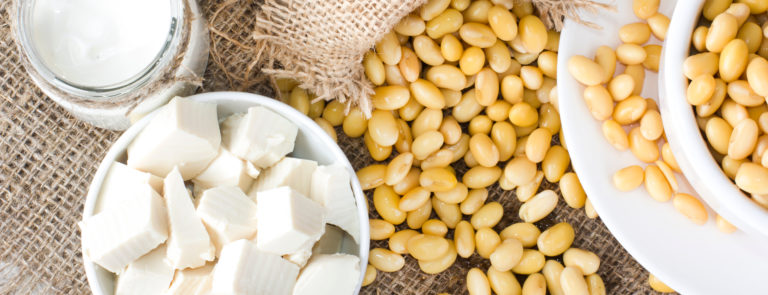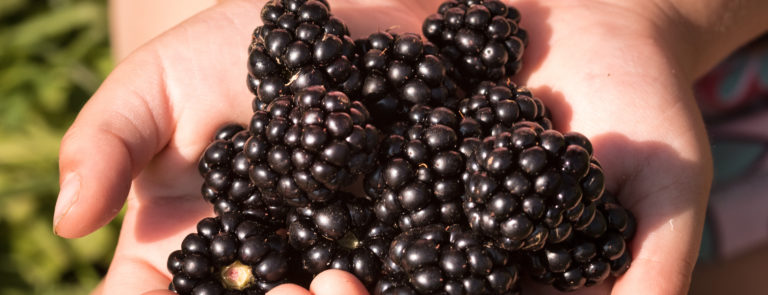20% off €40
34 top foods & sources of vitamin B12

The discovery of the structure of vitamin B12 was considered so important to human health that it earned the chemist Dorothy Hodgkin a Nobel Prize in 1964.1
A key nutrient that our bodies can’t produce on our own, vitamin B12 is supported through our diet and with supplements.
But what actually is vitamin B12? Why is it important? And what are some of the best vitamin b12 sources?
Find out everything you need to know about this essential nutrient in our guide.
What is vitamin B12?
Vitamin B12 is an essential water-soluble vitamin that is stored in our body for between two to four years.2
While our understanding of vitamin B12 may have changed over the years, our bodies’ need for this multi-tasking vitamin hasn’t.
In fact, every cell in the human body uses vitamin B12 to some degree in its function.
Vitamin B12 is needed for:
- Red blood cell formation. B12 helps to produce regular sized red blood cells that function properly. If you’re not getting enough, this may make your body create red blood cells that are too big to function efficiently.3
- The nervous system.
For more information on why we need B12 and also how to test your levels, read this article: How to test your B12 levels.
We gradually rid our bodies of vitamin B12 throughout each day whenever we visit the toilet, so we have to ensure we’re replacing it consistently.
Summary
- Vitamin B12 is needed to keep our bodies functioning healthily, especially our red blood cells
- A vitamin B12 deficiency can cause pernicious anemia
Why are some people deficient in vitamin B12?
In the UK and other developed countries, malnutrition is rare.
However, in other parts of the world, vitamin B12 deficiency is common, especially in countries with a high vegetarian population.4
Following a highly restrictive diet, such as one designed for rapid weight loss, may also find themselves lacking the vital vitamin B12 they need to stay healthy.
Older adults are also more likely to experience low levels of vitamin B12, with around 1 in 10 people aged 75 or over and 1 in 20 people aged 65 – 74 affected.5
Older people tend to produce less stomach acid, which is needed to absorb vitamin B12 from food.
For a severe deficiency, vitamin B12 injections might be prescribed by a doctor.
Why vegetarians and vegans lack vitamin B12
Vegetarians and vegans are at risk of running low on vitamin B12, as dietary sources of vitamin B12 are exclusively from animal products.
Luckily, eating vitamin B12-fortified food and taking a B12 supplement may address this.
Summary
- The main way we get vitamin B12 is through our diet, so if you’re deficient, it’s often a result of not having a balanced diet
- Older people can struggle to absorb B12 as their stomachs produce less acid
How to get vitamin B12
So how can you get more vitamin B12? It can be found all together in a vitamin B complex.
Handpicked content: 9 of the best B12 supplements
While you can get vitamin B12 from animal products like meat and dairy, you can also consume whole grains and different kinds of legumes, as these are also sources of vitamin B in all its forms.
14 top B12 vitamin foods
If you’re looking to up your intake, we’ve listed some of the best foods high in vitamin B12. These include:6
- Beef. If you’re wondering how to get vitamin B12 naturally, 100g of beef contains approximately 5.9µg of vitamin B12.
- Animal liver. Another food high in B12 is animal liver, with 100g containing approximately 18.7µg of vitamin B12.
- Trout. If you’d rather get your b12 sources from something other than meat, there’s approximately 4.3µg of vitamin B12 in fish (100g) like rainbow trout.
- Animal kidneys. 100g of animal kidney contains approximately 16µg of vitamin B12.
- Tuna. There’s approximately 2.2µg of vitamin B12 in fish (100g) like tuna.
- Salmon. 100g of salmon contains approximately 3.2µg of vitamin B12.
- Ham. 100g of ham contains approximately 0.7µg of vitamin B12.
- Chicken breast. 100g of chicken breast contains approximately 0.3µg of vitamin B12.
- Clams. One of the best foods rich in B12, 100g of clams contain approximately 11.28µg of vitamin B12.
- Turkey. 100g of turkey contains approximately 1µg of vitamin B12.
- Lamb. 100g of lamb contains approximately 2.6µg of vitamin B12.
- Pork. 100g of pork contains approximately 0.7µg of vitamin B12.
- Oysters. Another one of the best sources of vitamin B12 is oysters. 100g of oysters contain approximately 15.6µg of vitamin B12.
- Cod. 100g of cod contains approximately 2.12µg of vitamin B12.
10 best vegetarian B12 vitamin sources
On the hunt for some vegetarian B12 sources? Don’t worry, there are plenty of ways you can get B12 in your diet without having to eat meat or fish.
Discover ten vegetarian B12 sources below:7
- Yoghurt. 100g of yoghurt contains approximately 0.8µg of vitamin B12.
- Eggs. 100g of eggs contain approximately 1.1µg of vitamin B12.
- Milk. One of the best drinks with B12 is milk. One cup of whole milk contains approximately 1.32µg of vitamin B12.
- Cheddar cheese. 100g of cheddar cheese contains approximately 1.06µg of vitamin B12.
- Mozzarella cheese. 100g of mozzarella cheese contains approximately 2.28µg of vitamin B12.
- Butter. 100g of butter contains approximately 0.2µg of vitamin B12.
- Cream. 100g of cream also contains approximately 0.2µg of vitamin B12.
- Cream cheese. 100g of cream cheese contains approximately 0.3µg of vitamin B12.
- Milk chocolate. 100g of milk chocolate contains approximately 0.8µg of vitamin B12.
- Whey. 100g of whey contains approximately 0.3µg of vitamin B12.
10 top vegan B12 foods
Vegans might struggle to get enough vitamin B12 from dietary sources, as plants and fungi don’t contain it.8
However there are other vegan B12 sources that you can easily add to your diet. Here are some of the best vegan sources of vitamin B12 for you to try:9
- Nutritional yeast. Used in a lot of vegan recipes to give a cheesy flavour, 100g of nutritional yeast contains approximately 150µg of vitamin B12.
- B12 Fortified cereals. Often fortified with vitamins and iron, some cereals are good vegan vitamin B12 sources. For example, 100g of Kellogg’s All-Bran contains approximately 18.8µg of vitamin B12.
- Yeast extract spread. In yeast extract spreads like Marmite, there is approximately 0.5µg of vitamin B12 per 100g.
- Tempeh. 100g of tempeh contains approximately 0.08µg of vitamin B12.
- Energy bars. 100g of energy bars (e.g. Clif bar) contain approximately 1.3µg of vitamin B12.
- Rice milk. One cup of rice milk contains approximately 1.54µg of vitamin B12.
- Coconut milk yoghurt. 100g of non-dairy yoghurt made with coconut milk contains approximately 0.57µg of vitamin B12.
- Coconut milk. One cup of coconut milk contains approximately 1.54µg of vitamin B12.
- Soya milk. One cup of soya milk contains approximately 2.07µg of vitamin B12.
- Supplements. If you’re vegan, consider taking a 500µg B12 supplement to ensure you’re getting the vitamin B12 you need.
Summary
- There are a variety of ways you can get vitamin B12 in your diet, whether you’re vegan, vegetarian or not
- Some of the best sources of vitamin B12 are from meats, dairy products, non-dairy milks and nutritional yeast
How much vitamin B12 do I need?
We’ve explored all the different sources of vitamin B12 that you could add to your diet, but exactly how much do you need a day?
Adults between the ages of 19 and 64 need about 1.5 micrograms vitamin B12 per day.10
However, for women how are pregnant or breastfeeding, the recommended intake is 2.6-2.8 micrograms.11
Can you have too much vitamin B12?
The short answer is that we still don’t know, as there’s not enough data to explore how taking too much vitamin B12 could affect you.
So it’s recommended to stick to the recommendation above, or speak directly with your GP for more advice.
Why don’t we get as much vitamin B12 as our early ancestors?
Vitamin B12 is produced by the fermentation of microbes found naturally in soil. To do this, the soil must also contain the trace mineral cobalt.12
Hundreds of years ago, before intensive farming, soil was rich in the microbes and cobalt required to produce vitamin B12.
Eating vegetables fresh from the field, for instance, would provide you with it, as would drinking from a mountain stream.
Now, even farm animals take B12 supplements, as due to agricultural conditions they don’t always get the exposure to soil they once did, and if they do, that soil is often deficient in the cobalt needed for the production of vitamin B12.13
How can I increase my B12 absorption?
It may be possible to increase your B12 absorption if you increase your folate intake alongside your B12.
It is also said that some heartburn medication can reduce your stomach acid levels, which may interfere with absorption.14
So it may be worth mentioning to your GP to see if you can try a different kind of medication instead.
The final say
- Vitamin B12 is an essential nutrient to keep our red blood cells forming and functioning properly
- Vegetarians and vegans can sometimes be deficient as the primary sources of B12 are found in animal products
- Vegetarians and vegans can use supplements to increase their intake of vitamin B12
- Adults should aim for an intake of 1.5 micrograms per day, but women who are pregnant or breastfeeding are advised to increase their intake to 2.8 micrograms
Last updated: 13 August 2021
- https://www.nobelprize.org/prizes/chemistry/1964/perspectives/
- https://www.nhs.uk/conditions/vitamin-b12-or-folate-deficiency-anaemia/
- https://www.health.harvard.edu/a_to_z/vitamin-b12-deficiency-a-to-z
- https://www.ncbi.nlm.nih.gov/pmc/articles/PMC6540890/
- https://www.nhs.uk/conditions/vitamin-b12-or-folate-deficiency-anaemia/
- https://fdc.nal.usda.gov/
- https://fdc.nal.usda.gov/
- https://www.foundationforpn.org/what-is-peripheral-neuropathy/causes/vitamin-nutrition-deficiency/
- https://fdc.nal.usda.gov/
- https://pubmed.ncbi.nlm.nih.gov/17959839/
- https://pubmed.ncbi.nlm.nih.gov/17959839/
- https://www.nhs.uk/conditions/vitamins-and-minerals/vitamin-b/
- https://ods.od.nih.gov/factsheets/VitaminB12-HealthProfessional/#h2
- https://www.zoetis.com.au/_locale-assets/faq/cobaltdeficient.pdf



